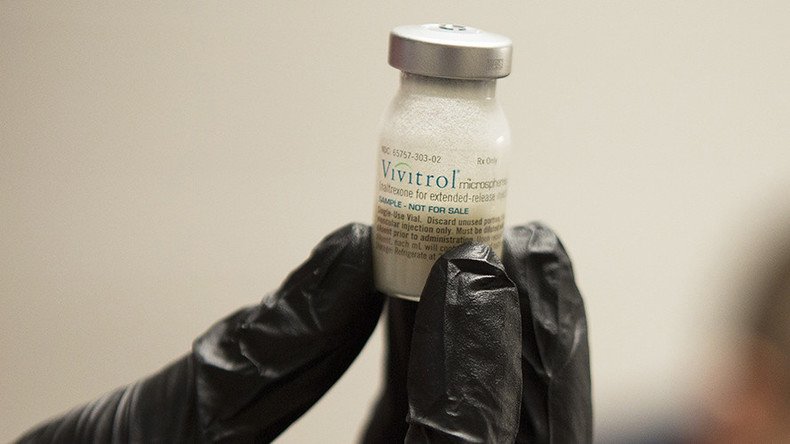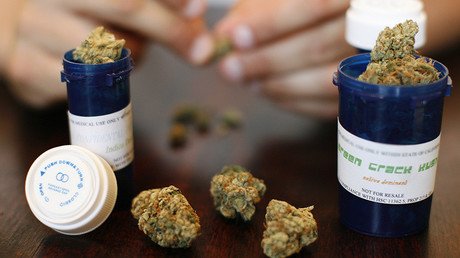Chris Christie-led opioid crisis panel urges Trump to declare ‘emergency’

The White House’s commission on combating the opioid epidemic in America has revealed in an interim draft letter to President Donald Trump that a federal state of emergency should be issued to deal with the crisis.
In a letter to the president, the commission details recommendations that would bring millions of dollars in funding to help implement a national response to the US opioid crisis.
Arizona, Florida and Maryland have already declared a state of emergency in response to the national epidemic.
On Monday, the commission’s long awaited draft letter to Trump further outlines numerous ways to fight the opioid epidemic which has spread through almost every state in the US. The commission consists of five members which were chosen by the president in March after he signed an executive order to establish the group.
Their report is being prepared independently of the US Government’s Office of National Drug Control Policy, although the agency did submit a list of policy recommendations to the commission.
Leading the commission is Governor Chris Christie (R-New Jersey). He is joined by Governor Charlie Baker (R-Massachusetts), Governor Roy Cooper (D-North Carolina), former Congressman, Patrick Kennedy and Harvard University psychobiology professor, Dr. Bertha Madras. The delegation initially missed their first two deadlines for the report, which was supposed to be delivered June 27.
The goals of the commission are to study mechanisms to combat and treat the US opioid epidemic, which killed a record 33,000 people nationwide in 2015, according to the US Centers for Disease Control and Prevention.
The members wrote to the president with urgent instructions to deal with the situation.
“The first and most urgent recommendation of this Commission is direct and completely within your control. Declare a national emergency under either the Public Health Service Act or the Stafford Act,” the committee wrote to Trump.
Their draft letter described what a declaration of this kind would mean for cabinet members and lawmakers alike. "Your declaration would empower your cabinet to take bold steps and would force Congress to focus on funding and empowering the Executive Branch even further to deal with this loss of life," the draft document stated.
They also suggest mandating prescriber education initiatives; providing model legislation for states to allow dispensing of naloxone, which is an opioid overdose reversal medication; and moreover, establishing and funding a federal incentive to enhance access to treatment.
Before the report was released, some legislators criticized the Office of National Drug Control Policy and the commission’s handling of the crisis thus far.
Rep. Trey Gowdy (R-South Carolina), who serves as the chair of the House Committee on Oversight and Government Reform, said the “ONDCP has failed to produce a formal national drug control strategy and a national drug control budget, which is supposed to be released no later than Feb. 1 each year,” during a hearing last week while discussing the government’s response to the situation.
Senator Joe Donnelly (D-Indiana) also expressed frustration with the commission’s response.
“We don’t really have time to wait on a commission from the White House that hopefully will produce something at some point,” he said, according to Stat News.
Congress approved nearly $1 billion last year to fund a response to the epidemic as part of the 21st Century Cures Act of 2016. A similar amount is expected to be approved next year.
READ MORE: Opioid epidemic, not banking system, to blame for falling US labor – Fed chief Yellen















